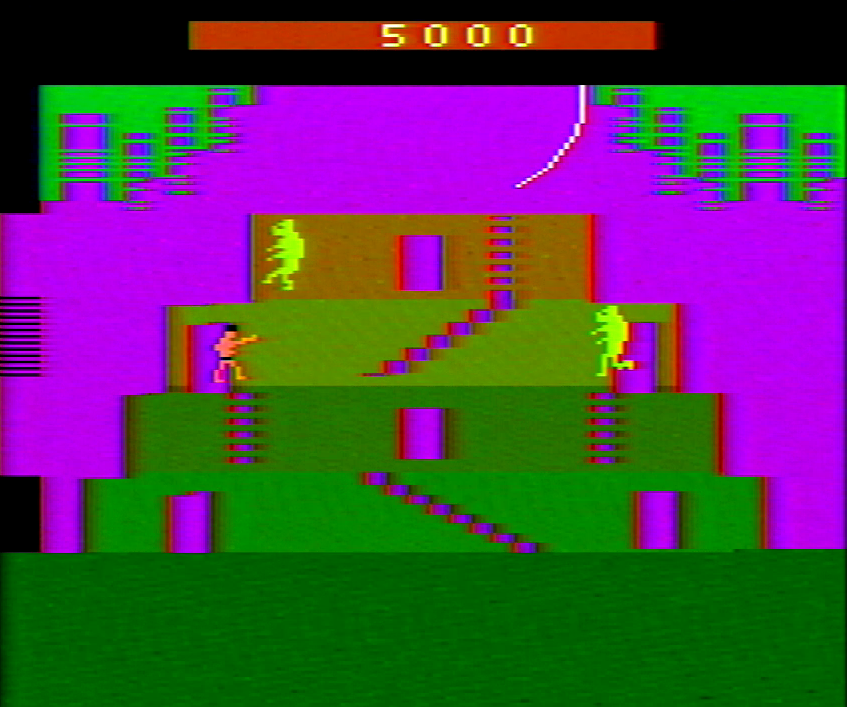
As reported in a post at the excellent Video Game History Foundation, a copy of the unreleased Atari port of the Colecovision Tarzan game has been found, bought from a former Coleco employee. It used an unusual bankswitching scheme, but has been hacked to use a more common system, and both versions of the ROM are available from the Internet Archive. Both are 16K, very large for an Atari game, but microscopic by the standards of data today.
The Colecovision version of Tarzan was a late release, and had unusually good animation for its time, and repetitive, yet atmospheric, music. Here’s a Youtube link of the first loop of that version of the game (5 1/2 minutes):
I tried a little of the 2600 version, and I couldn’t make out how to get further than a few screens in. That single button control scheme is a real hassle! Here that is (four minutes 1/2). Dig that opening theme song! Don’t dig that gameplay music, though. It didn’t sound as bad when I played it, I think it was an issue with the recording.
The article has a run that gets further into it (7 minutes):

